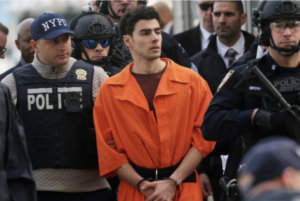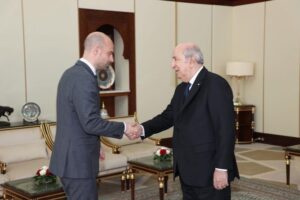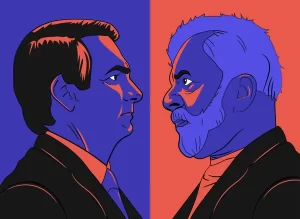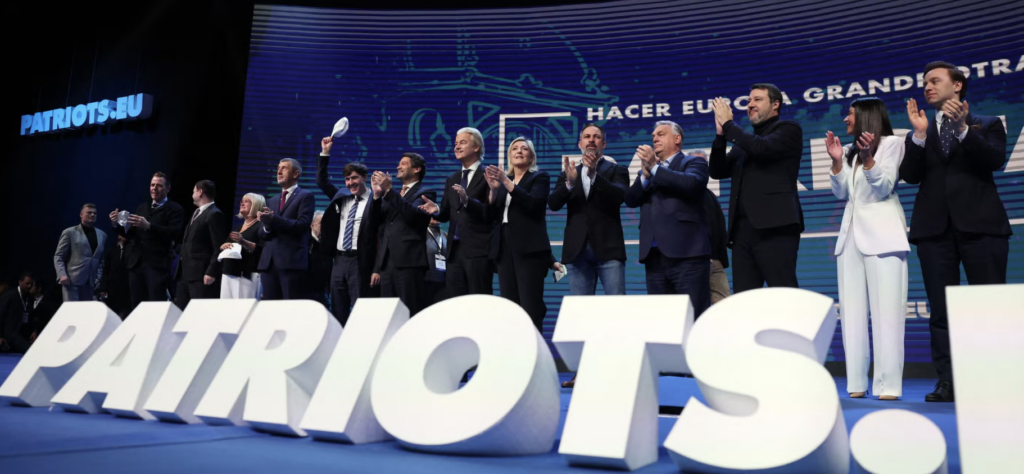Organised by the Spanish party Vox, the event brought together the main leaders of the new Patriots for Europe (PfE) parliamentary group, including Viktor Orbán, Marine Le Pen, Geert Wilders and Matteo Salvini. Under the slogan Make Europe Great Again, directly inspired by Donald Trump’s slogan, the summit made clear its ambition to redefine the future of Europe according to a nationalist and conservative vision.
One of the highlights of the summit was the virulent criticism of the European Union, described by the participants as a « corrupt » and « anachronistic » structure. The leaders called for a « 180-degree turn » in European policy, emphasising themes such as national sovereignty, the fight against illegal immigration and the questioning of current environmental policies. This stance reflects the growing strength of the Patriots for Europe group, which is now the third largest political force in the European Parliament with 84 seats.
Immigration and the economy: the key themes
The issue of immigration was central to the debates. Participants called for a drastically more restrictive migration policy, proposing the closure of the EU’s external borders, the systematic expulsion of irregular migrants and a complete overhaul of the European asylum system.
On the economic front, the summit provided an opportunity to criticize the EU’s current model, which is seen as too favorable to globalization. Far-right leaders called for greater protectionism, a rethink of free trade agreements and greater support for national industries in the face of international competition.
The growing influence of the far right in Europe but …
The summit also highlighted the growing influence of this political current, which is now in or close to power in several EU countries. This poses new challenges for the future of European integration and the cohesion of the Community project. The participants were optimistic about their ability to become the leading political force in the European Parliament in the 2026 elections.
However, despite the unity displayed, differences persist within the group. Positions on relations with Russia, the attitude to adopt towards NATO and the details of the economic policies to be implemented vary from party to party and from country to country. These differences could possibly act as a brake on the cohesion of the movement in the long term.
Reactions and protests in Europe
Reactions to the far-right summit in Madrid were strong and varied. The European institutions expressed their concern, with Ursula von der Leyen calling for the defence of democratic values. Pro-European demonstrations took place in several capitals, such as in Berlin, reflecting the polarisation of society. Elon Musk’s presence rekindled the debate about the role of social networks in spreading extremist ideas, with some suggesting possible sanctions. The media covered the event extensively, highlighting the growing influence of the far right in Europe. These reactions reflect the tensions within the EU between defenders of the traditional European project and those who advocate a more nationalist vision.
In conclusion, the far-right summit in Madrid recently marks a turning point in European politics. It underlines the need for pro-European forces to rethink their strategy in the face of this rise in power. The future of the European Union could be profoundly affected by the aftermath of this event, with potential consequences for European integration, migration and economic policies, as well as Europe’s place in the world. The 2026 European elections will be a decisive test for both an alternative vision of Europe and the reinvention of the traditional project to tackle 21st-century challenges.










